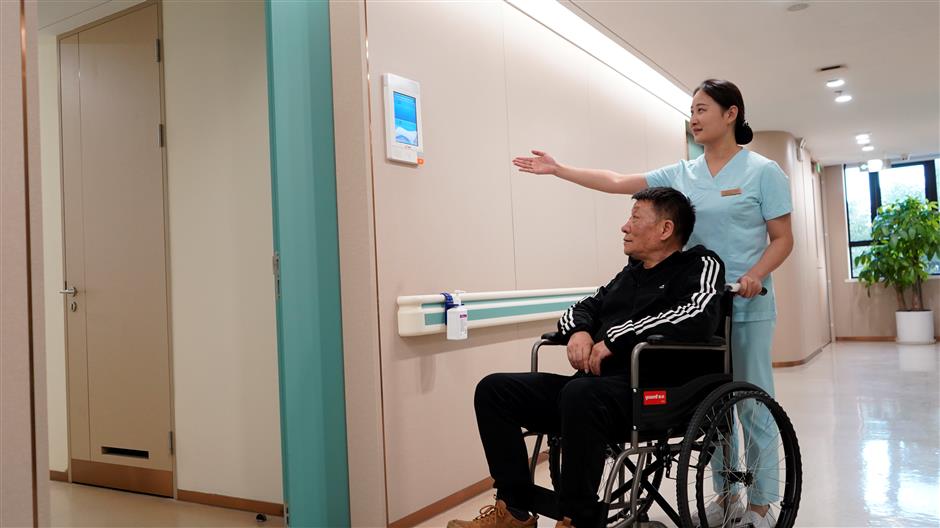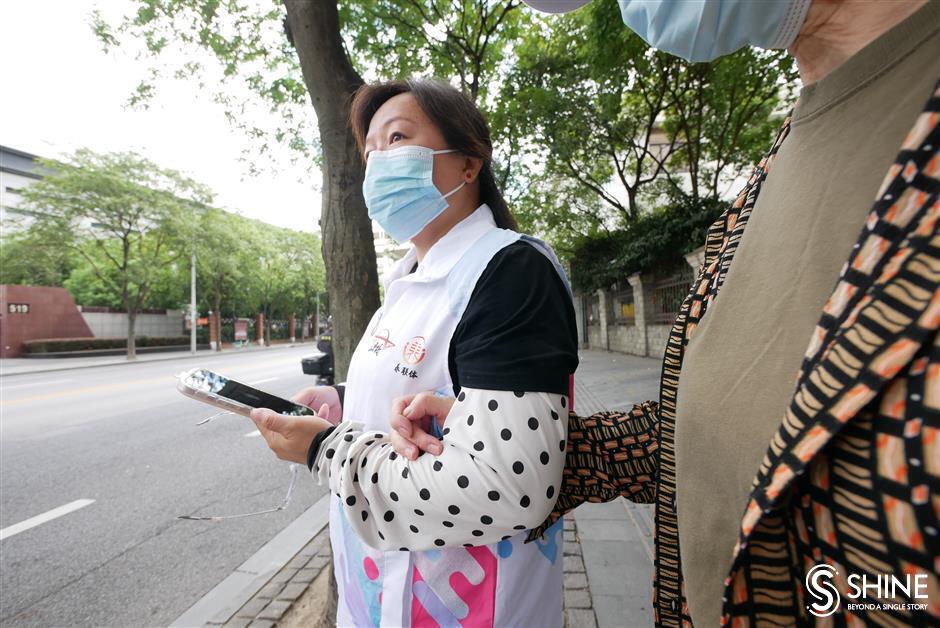
今日上海
两会重点关注老年人健康 - 2025年01月16日
Elderly-friendly health care highlighted at Two Sessions
Shanghai has stepped up efforts to create an elderly-friendly society by enhancing medical service, promoting general physicians in the community, as well as regulating and boosting peizhen, or medical treatment accompaniment.
According to delegates of the China Association for Promoting Democracy's Shanghai Commission, there were 5.68 million people aged 60 and older in the city by the end of last year, covering 37.4 percent of the local registered population. Their high demand for medical services remains unfulfilled due to their limited ability to use digital devices and insufficient transportation to the hospital.
The delegates at the ongoing Shanghai Two Sessions stated that while the current online reservation system greatly enhances patient convenience, many elderly individuals struggle to recognize small characters on the screen and have limited proficiency in using smartphones or self-service reservation machines in hospitals.
On the other hand, the majority of the elderly reported that the biggest challenge they face is the lack of people accompanying them to the hospital, which results in traffic problems, long waiting times, and ineffective communication with medical staff.
The delegates urged hospitals to set up more manual windows for the elderly, provide volunteers or staff to assist them, and post signs in large characters.
They also suggested that community-based facilities set up teams to offer services to the elderly at home as well as online consultation.
They urged the government to introduce more policies to regulate the peizhen service and enhance its development.
According to the Shanghai Health Commission, the city has been promoting elderly-friendly service by offering multiple health reservation services through telephone, Internet and on-site service, and hospitals always have space for outpatient services for them. There are designated channels for elderly patients, and volunteers or social workers are available at the reception desks to provide consultation and support.
Some hospitals feature larger characters in their online section for the convenience of the elderly.
The GPs at local community-based facilities offer regular and long-term health management and service to local residents, most of them being the elderly. For individuals experiencing mobility difficulties, the doctors provide home-based services. Patients with complicated conditions will have quicker access to leading experts in senior hospitals under their GP's recommendations.
Officials from Guangzheng Xinshijie Eye Hospital said it has nurses to escort the elderly patients. Given that many elderly patients visit the hospital for cataract surgery, the hospital has installed signs with larger characters to assist them during their visits.

A nurse at Guangzheng Xinshijie Eye Hospital escorts a patient with a cataract for treatment.
"Patients' medical experience is an important part of health service, and offering high-quality and high-end service to the elderly is always a concern to our hospital," said Dr Lian Jingcai from the hospital.
"We have adopted AI technology for early screening, intervention, and treatment of cataracts, whose incidence is 80 percent for Chinese between 60 and 89 years old."
Shanghai Open University, in collaboration with the Shanghai Aged Care Association, has launched training courses and established standards on service rules and skill requirements for peizhen services, aiming to enhance professionalism and standardization.
Staff offering peizhen service should have qualifications in professional ethics, communication skills, emergency treatment ability, and medical common sense.
Wang Wei, a senior peizhen staff member at Shanghai Quanchengjiujiu Health Service Co, expressed the demand for more social recognition and government support.
"The main service target of peizhen is elderly people in their 70s and 80s. The hourly cost is usually between 70 yuan (US$9.5) and 100 yuan. In certain communities, the government provides subsidies, while some charitable foundations collaborate with the community to provide free or discounted services," she said.
"Most elderly people use peizhen to visit a leading public hospital, which has many buildings, complicated designs, and a large number of patients."
"Many elderly people, unfamiliar with the process, may find it time-consuming to navigate. We can help them with reservation, registration, payment, and designing the best route between different departments. On average, we can help save half of the time when escorting the patient."
However, the market's demand is not as strong as believed. Most individuals, particularly the elderly, lack the understanding of paying for services.
"The so-called huge demand they want is free. If the service comes with a price, many elderly people may hesitate or directly refuse it. It takes a long time to cultivate the market by our good service and the government's support," she said.

A peizhen staff member escorts an elderly person to a hospital (file photo).
Source: Shanghai Daily

